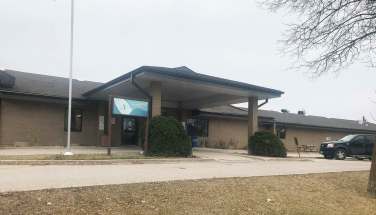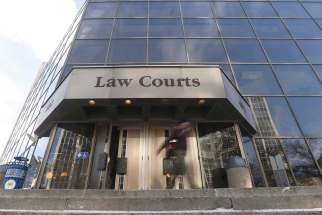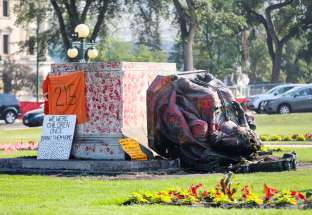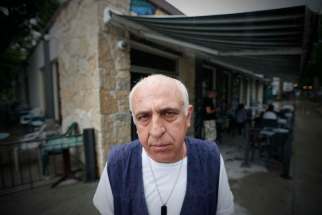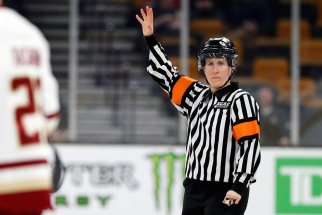Judge dismisses Manitoba churches’ challenge over COVID-19 restrictions Public-health constraints on religion and assembly freedoms were justified by science during pandemic, Queen's Bench chief justice says in lengthy decision
Read this article for free:
or
Already have an account? Log in here »
To continue reading, please subscribe:
Monthly Digital Subscription
$0 for the first 4 weeks*
- Enjoy unlimited reading on winnipegfreepress.com
- Read the E-Edition, our digital replica newspaper
- Access News Break, our award-winning app
- Play interactive puzzles
*No charge for 4 weeks then price increases to the regular rate of $19.00 plus GST every four weeks. Offer available to new and qualified returning subscribers only. Cancel any time.
Monthly Digital Subscription
$4.75/week*
- Enjoy unlimited reading on winnipegfreepress.com
- Read the E-Edition, our digital replica newspaper
- Access News Break, our award-winning app
- Play interactive puzzles
*Billed as $19 plus GST every four weeks. Cancel any time.
To continue reading, please subscribe:
Add Free Press access to your Brandon Sun subscription for only an additional
$1 for the first 4 weeks*
*Your next subscription payment will increase by $1.00 and you will be charged $16.99 plus GST for four weeks. After four weeks, your payment will increase to $23.99 plus GST every four weeks.
Read unlimited articles for free today:
or
Already have an account? Log in here »
Hey there, time traveller!
This article was published 21/10/2021 (1510 days ago), so information in it may no longer be current.
COVID-19 public-health orders that restricted gatherings and limited the number of people permitted to attend in-person church services are not unconstitutional or undemocratic, a Manitoba court has ruled.
While the rules did restrict the freedoms of religious expression and peaceful assembly, they didn’t infringe upon charter rights to liberty and equality and were justified as a pandemic response based on credible science, Court of Queen’s Bench Chief Justice Glenn Joyal decided.
After reviewing a large volume of scientific evidence, the judge dismissed legal challenges brought by a group of seven Manitoba churches arguing the province’s public-health orders unfairly violated their rights and were improperly enacted into law.
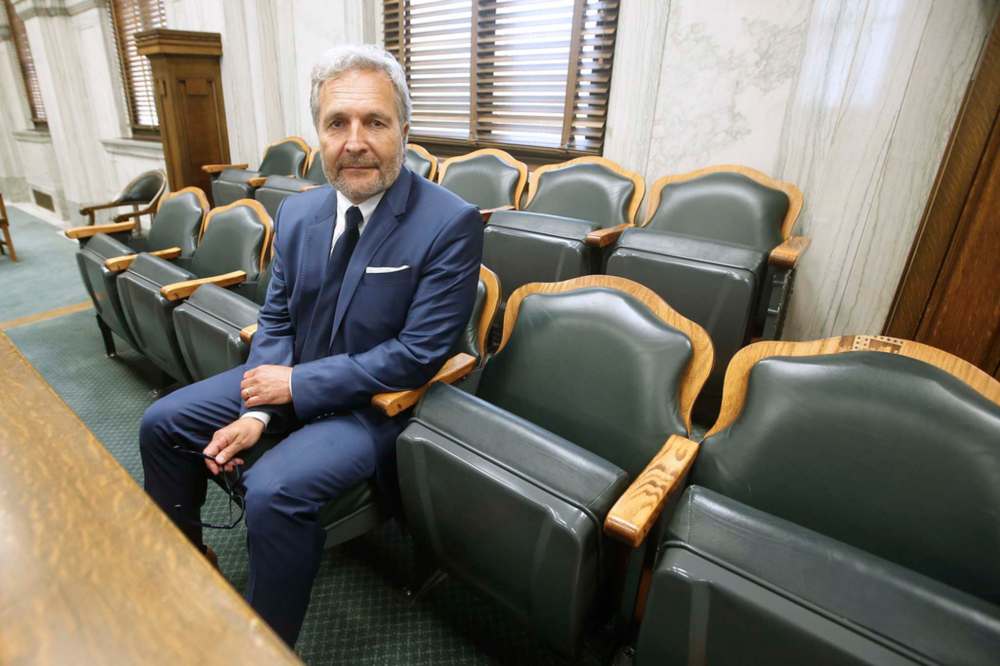
The decision comes after court heard several days of testimony last spring from scientists and public-health and medical experts, including chief provincial public-health officer Dr. Brent Roussin, who explained the scientific reasoning the province used to enact the temporary restrictions on gathering sizes and in-person church services.
“I have no difficulty concluding that even where Manitoba’s response to the various waves of the pandemic could be properly criticized in hindsight as too slow and not sufficiently broad, the restrictions that were eventually imposed represent public health policy choices rooted in a comparatively well-accepted public health consensus. As Dr. Roussin noted, the impugned restrictions were generally consistent with measures seen across most of Canada and the rest of the world,” Joyal wrote in a 156-page decision, one of two rulings issued in answer to the churches’ challenge.
Joyal’s written decisions were released Thursday, 10 months after the case was launched by Gateway Bible Baptist Church, Pembina Valley Baptist Church, Redeeming Grace Bible Church, Grace Covenant Church, Slavic Baptist Church, Bible Baptist Church, the Christian Church of Morden and pastors Thomas Rempel, Tobias Tissen and Ross MacKay.
Second decision on Churches vs. Manitoba
The churches specifically challenged three provincial public-health orders that last fall, at the height of the second wave of the pandemic in Manitoba, restricted private and public gatherings and placed limits on the number of people who could attend in-person worship services.
It is not reasonable in a pandemic to require public-health orders to be passed through the legislative assembly, Joyal also ruled, dismissing another of the churches’ legal arguments. The group wanted the court to declare that the public-health orders violated an “unwritten constitutional principle” that only the legislative assembly — not public-health officials — can make laws. But Joyal ruled the emergency measures are “constitutionally justifiable” within the province’s Public Health Act legislation.
The churches were represented by the Justice Centre for Constitutional Freedoms, whose founder and president John Carpay shocked the national legal community by admitting he hired a private investigator to follow Joyal and senior provincial government officials to see if they were following the public-health orders.
In a statement, the organization said it may appeal the ruling. Manitoba-based lawyer Allison Pejovic had argued the public-health rules failed to consider the “collateral social and health costs” of lockdowns.
“We are disappointed in these decisions and in the unwavering deference accorded to public-health officials,” Pejovic stated in a news release. “We are carefully reviewing the decisions and are considering an appeal.”
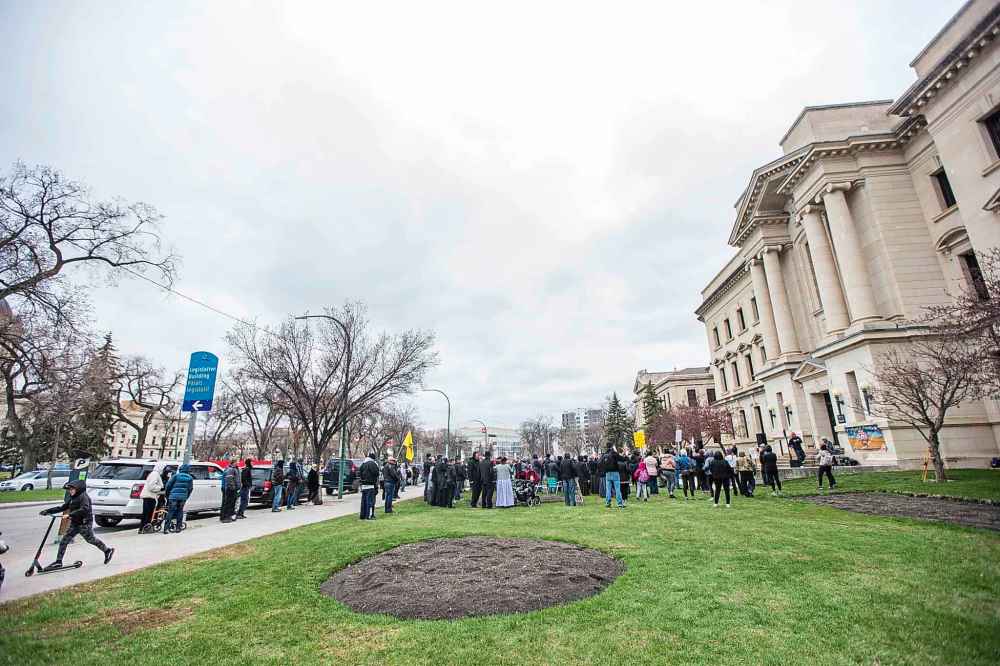
Manitoba Justice Minister Cameron Friesen said the ruling upholds the government’s position that it enacted reasonable response measures.
“Those measures are demonstrating their value even now, as we continue to see a stabilizing of the daily case counts, even while other jurisdictions are experiencing very significant case spread and hospitalizations,” Friesen said in an emailed statement to the Canadian Press.
Joyal’s rulings are not binding in courts outside of Manitoba, but they could have a far-reaching impact, a legal expert says. The province was able to provide credible evidence that its limits on freedoms during the pandemic were reasonable, and courts across Canada use the same legal framework for these kinds of constitutional challenges, said Gerard Kennedy, an assistant professor of law at the University of Manitoba.
“Unless the (public-health) restrictions in other provinces were radically different, a judge in another province would think long and hard before coming to a different conclusion,” Kennedy said.
The decision emphasized that public-health officials must be afforded a “margin of appreciation” to determine reasonable limits on charter rights.
“This was not a public inquiry; it didn’t say what Manitoba did was good, or wise. It was, however, constitutional. So even if it can be criticized, it was constitutional and, thus, legal,” Kennedy said.
“Given the amount of evidence that was considered, given the legal framework that is the same across the country, it’s a pretty persuasive precedent.”
“Given the amount of evidence that was considered, given the legal framework that is the same across the country, it’s a pretty persuasive precedent.” – Gerard Kennedy, an assistant professor of law at the University of Manitoba
The Justice Centre for Constitutional Freedoms has launched similar court challenges in other provinces.
Carpay apologized in July for having the judge tracked, and claimed the private-eye work was not related to the then-still-ongoing legal case. Upon discovering he was being followed, Joyal made a complaint to the Winnipeg Police Service, which said it would investigate.
The spying came to light when the judge called a special court hearing July 12 to announce he’d been followed while doing errands in Winnipeg. Someone showed up at his home and had the address of his cottage as well, he said. Following the judge’s revelation, Carpay admitted he was responsible.
The incident prompted Friesen to call for an investigation into the conduct of all lawyers affiliated with the Alberta-based JCCF, which is a registered charity. Carpay temporarily stepped down as president of the organization he created, but returned to the position less than two months later.
In court in July, Joyal stated the incident would not affect his decision in the churches’ case. Indeed, there was no mention in his ruling of the private-investigator tactics used by the organization.
— With files from the Canadian Press
katie.may@freepress.mb.ca
wfppdf:https://wfpquantum.s3.amazonaws.com/pdf/2021/55921_Church decision MBQB 218.pdf|First decision on Churches vs. Manitoba:wfppdf

Katie May is a general-assignment reporter for the Free Press.
Our newsroom depends on a growing audience of readers to power our journalism. If you are not a paid reader, please consider becoming a subscriber.
Our newsroom depends on its audience of readers to power our journalism. Thank you for your support.
History
Updated on Thursday, October 21, 2021 12:08 PM CDT: Adds more detail, attaches decisions.








